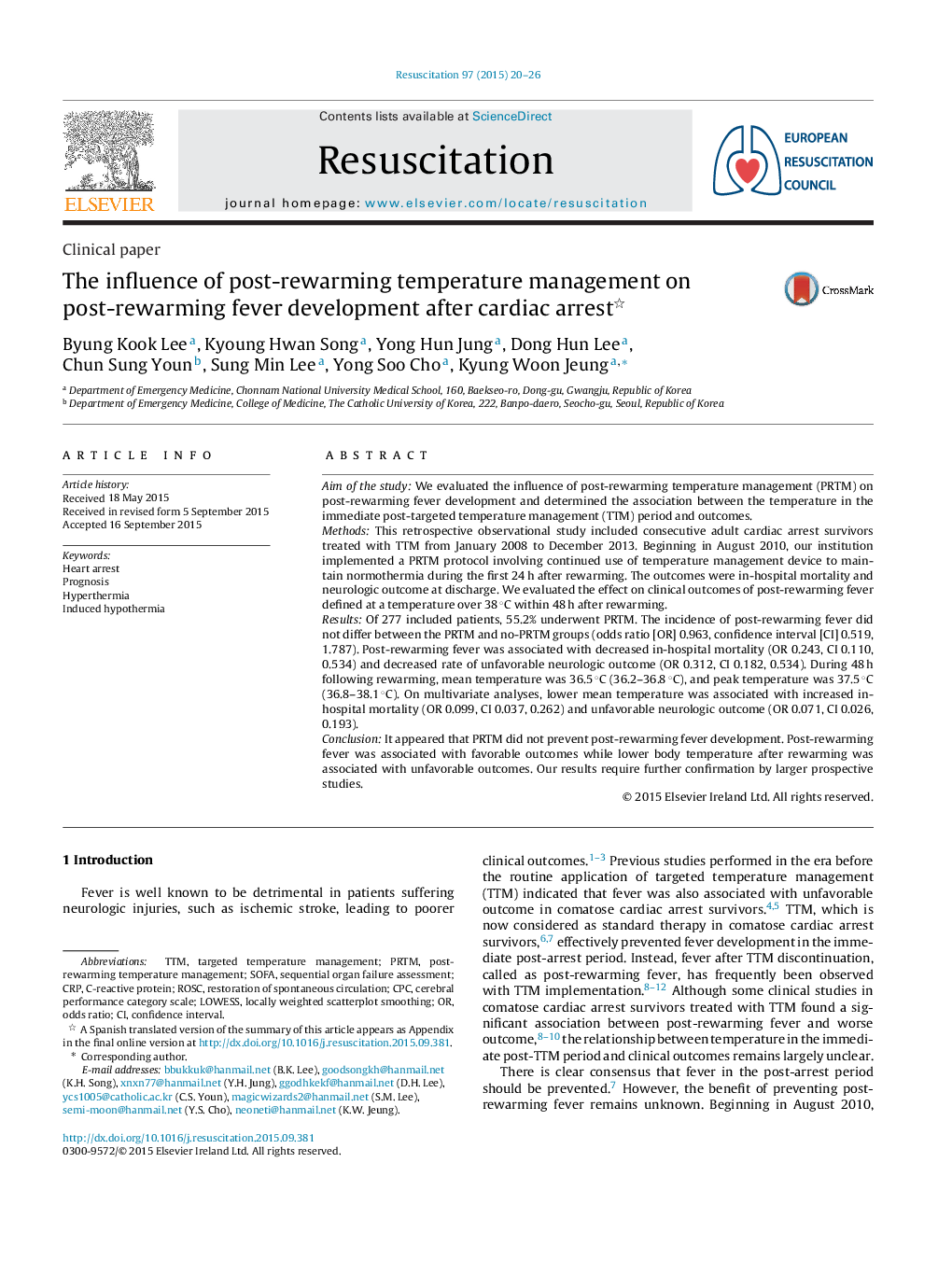| کد مقاله | کد نشریه | سال انتشار | مقاله انگلیسی | نسخه تمام متن |
|---|---|---|---|---|
| 5997642 | 1578987 | 2015 | 7 صفحه PDF | دانلود رایگان |

Aim of the studyWe evaluated the influence of post-rewarming temperature management (PRTM) on post-rewarming fever development and determined the association between the temperature in the immediate post-targeted temperature management (TTM) period and outcomes.MethodsThis retrospective observational study included consecutive adult cardiac arrest survivors treated with TTM from January 2008 to December 2013. Beginning in August 2010, our institution implemented a PRTM protocol involving continued use of temperature management device to maintain normothermia during the first 24 h after rewarming. The outcomes were in-hospital mortality and neurologic outcome at discharge. We evaluated the effect on clinical outcomes of post-rewarming fever defined at a temperature over 38 °C within 48 h after rewarming.ResultsOf 277 included patients, 55.2% underwent PRTM. The incidence of post-rewarming fever did not differ between the PRTM and no-PRTM groups (odds ratio [OR] 0.963, confidence interval [CI] 0.519, 1.787). Post-rewarming fever was associated with decreased in-hospital mortality (OR 0.243, CI 0.110, 0.534) and decreased rate of unfavorable neurologic outcome (OR 0.312, CI 0.182, 0.534). During 48 h following rewarming, mean temperature was 36.5 °C (36.2-36.8 °C), and peak temperature was 37.5 °C (36.8-38.1 °C). On multivariate analyses, lower mean temperature was associated with increased in-hospital mortality (OR 0.099, CI 0.037, 0.262) and unfavorable neurologic outcome (OR 0.071, CI 0.026, 0.193).ConclusionIt appeared that PRTM did not prevent post-rewarming fever development. Post-rewarming fever was associated with favorable outcomes while lower body temperature after rewarming was associated with unfavorable outcomes. Our results require further confirmation by larger prospective studies.
Journal: Resuscitation - Volume 97, December 2015, Pages 20-26